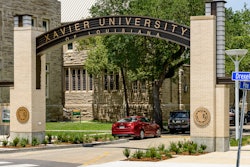Before You EXIT
States are increasingly turning to standardized testing to hold colleges accountable for student outcomes.
By Charles Dervarics
Dr. Walter M. Kimbrough knows he’s in the minority on the issue of testing. As president of Philander Smith College, a public, historically Black college in Little Rock, Ark., he is familiar with all the data showing that students of color often score below other students on key assessment tests.Despite reservations that testing could serve as a barrier to college enrollment or graduation, Kimbrough says assessment and accountability measures — when used properly — are important barometers to show the strengths and weaknesses of a postsecondary institution.
Arkansas law requires Kimbrough and other public college administrators to assess college sophomores to gauge student progress. It’s a requirement he also fulfilled previously as an administrator in Georgia, where public college students must take a Regents’ Test to graduate.
“Everybody is afraid of the assessment piece. But there has to be more accountability. If we don’t measure, we don’t really know how we’re doing,” Kimbrough told Diverse. “It’s a good conversation to have, and it’s nothing to be afraid of.”
His views appear to reflect the sentiment of a growing number of policy-makers these days, since many signs point to a new national focus on testing and assessment in higher education. State lawmakers increasingly want accountability measures to evaluate public investments in higher education, and these issues also are front and center for U.S. Secretary of Education Margaret Spellings’ National Commission on the Future of Higher Education.















